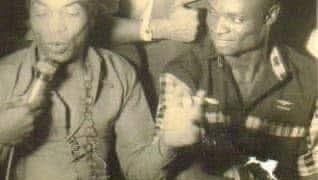My dad lived to the age of 91 and continued doing his several miles a day brisk walks, fully decked out in his joggers and sweatshirt, right up to about two months before he passed. Everybody in his large estate knew him. And why wouldn’t they? With a genuine smile on his face, he would playfully greet everyone. And I literally mean everyone, from the security men to their big bosses. For him, life was simple and shouldn’t be taken too seriously. His favourite line? “Bi Olorun se fe niyen” (that’s how God wants it). Once he utters those words, that’s it. He turns his face away from that issue and carries on with his life. Did he ever get stressed out and worried? He was only human, so of course he did. He however learned to quickly let go and not beat himself up about things he knew he couldn’t change by himself. He understood his emotions and had mastered how to manage them; the crux of emotional intelligence.
There’s a saying in the UK that you know you’re getting on in age when you find yourself older than all those you saw as authority figures while growing up i.e school teachers, referees, policemen and others. Till this day my inner man refuses to believe he’s older than football referees. In addition to the old English saying though, I would like to add this. You know you’re getting on when your children start to accuse you of the same things you accused your parents of. Is it when I excitedly tell them or my wife a story and I notice my excitement is just not being reciprocated? Only for them to stop me mid sentence and mid gesticulation with, “Dad, we’ve heard this more than ten times.” Or is it when I’m chatting with a teacher or any such third party and as is typical of us Akandes, I inject a bit of humour in the conversation – and I catch that look of, “here we go again” on my children’s faces because they’ve heard that same joke over a hundred times? My siblings and I did that all the time and just couldn’t understand why our daddy still laughed at a joke he had told over a million times! Just like dad, who was by no means a tall man, would always jokingly ask any tall man he met if he could give him a couple of inches to add to his height, I too, being follicly challenged (bald), have often found myself asking anyone with anything remotely resembling an afro, if they could spare me a little of their hair too. Na wa o…I guess things have come full circle now. What my children don’t know yet is that in a few years time they will very likely be telling similar tired jokes. Our God has a great sense of humour as the apple rarely falls far from the tree.
Outstanding leaders are those who are able to nurture an emotional bond with those they lead and are able to use this to bring out the best in them. They are able to inspire people around them to do more than they thought they were capable of. They’ve learned how to galvanize their people to work as a team which in turn produces phenomenal results. They know how to make their staff feel good about themselves, motivating them to soar. The truth is that human beings are more easily swayed by emotional arguments than rational ones. Rational arguments are more useful when employed to further back up the emotional one, rather than using the rational argument to lead. Outstanding leaders are resonant and by cultivating resonant relationships, they and their subordinates find themselves in tune and in sync in terms of shared vision and hope; both primary predictors of success in any endeavour; whether this be a family, a corporate organization, a religious organization or a nation. Leadership is not a person, it’s a relationship and effective leaders are those wise enough to spend time cultivating it. They know that’s what often sets an outstanding leader apart from a good one. Emotional bonds are said to be characterized by hope, compassion, mindfulness and playfulness. I only need to reflect on the kind of life my father lived and his general philosophy, to instantly agree with this. My father was very playful and this didn’t just help him to be an outstanding leader to whom people always found themselves gravitating but it did wonders for his health too. Like compassion, hope and mindfulness, playfulness is an experience very useful for invoking the renewal process – triggering the neurological networks and endocrine systems which enable body and mind to renew themselves.
There’s no way my father could have guessed how many lives he touched because of his genial and humble nature; or how many people looked forward to having their regular banters as he went on his walks. An appropriate venue within the estate he lived in was agreed upon for his Wake Keep and the massive outpouring of love by people we had never met before soon revealed this to us his children. Make people feel relevant and you’ll be surprised to see how far they’ll go for you. If they need to move mountains, they will. Even in death, he continues to inspire many of us.
Samuel Babafemi Akande
22 December 1922 – 21 April 2013
_______________ Oladapo Oritsemeyiwa Akande, a weekly newspaper columnist for several years, is a University of Surrey graduate with a Masters in Professional Ethics. An alumnus of the Institute for National Transformation and author of two books: The Last Flight and Shifting Anchors. Ghost writer of a third book LinkedIn: Oladapo Akande oladapo.akande@edutimesafrica.com




















































































 EduTimes Africa, a product of Education Times Africa, is a magazine publication that aims to lend its support to close the yawning gap in Africa's educational development.
EduTimes Africa, a product of Education Times Africa, is a magazine publication that aims to lend its support to close the yawning gap in Africa's educational development.